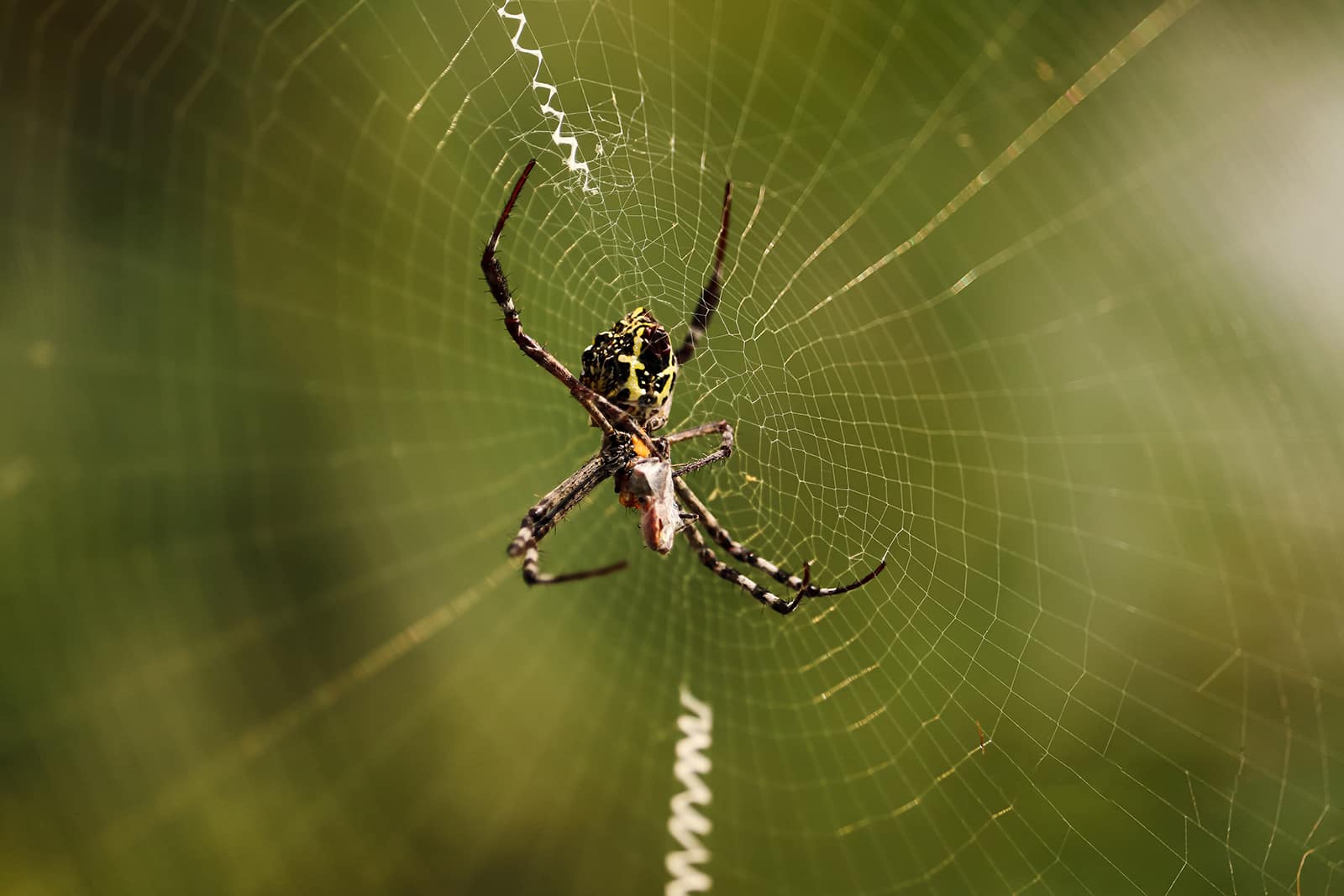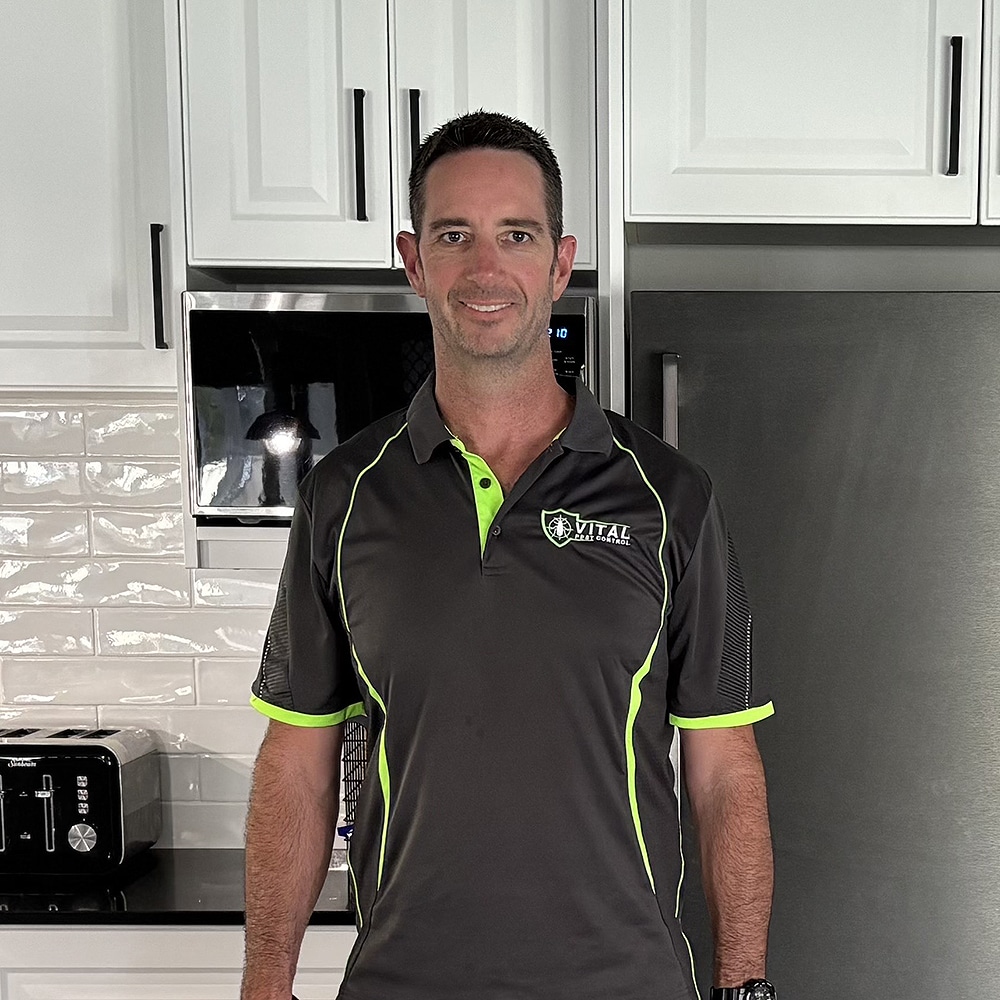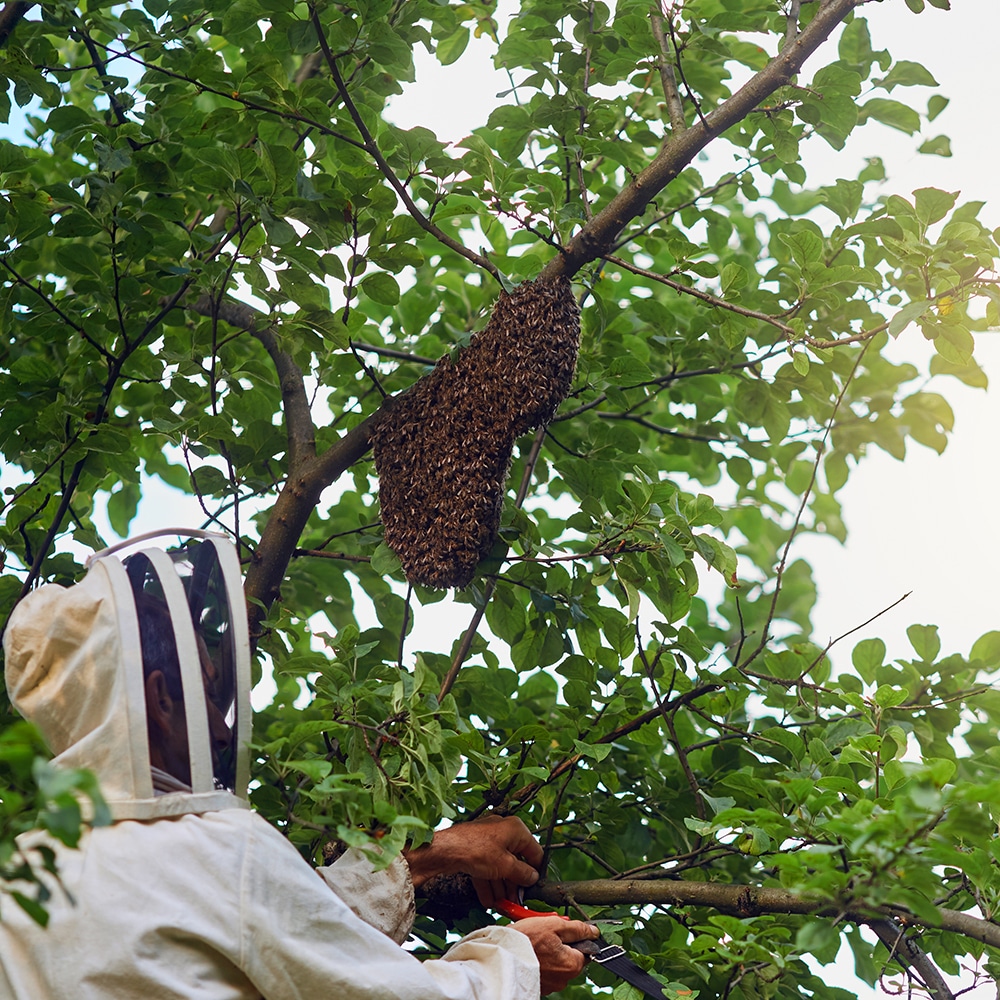
Why Do Spiders Come Back And Why
Why Do Spiders Come Back And Why On The Central Coast NSW. Responsive Proactive Solutions. Detail-focused for lasting results. Call Adam on 0431 222 894
The “Food Industry and Pest Control Comprehensive Guide” is a must-read for businesses. It offers solutions tailored to the Central Coast NSW. Learn how Vital Pest Control ensures pest-free kitchens with ease.
HACCP Fundamentals
HACCP is crucial for safe food handling. It identifies risks before they occur. Implementing HACCP ensures reliable and trustworthy food safety. Stay ahead of issues with this proactive approach.
Local Council Requirements
Understanding local council rules is vital. Compliance prevents fines and disruptions. Fast and responsive adherence keeps operations smooth on the Central Coast.
Approved Pesticides in Kitchens
Using approved pesticides is essential. They protect food without risking health. Trustworthy methods ensure both safety and quality in your kitchen.
Kitchen Layout Considerations
A well-planned kitchen reduces pest risks. Proper layout supports effective pest control. Maintain high standards with strategic design choices.
Staff Hygiene Training
Training staff in hygiene is non-negotiable. It prevents contamination and ensures safety. Reliable practices start with well-trained team members.
Storage Regulations for Perishables
Proper storage is key to preserving food quality. Follow regulations to minimise waste. Quality over quantity ensures better inventory management.
Cleaning and Sanitising Equipment
Regular cleaning keeps pests at bay. Sanitising equipment reduces contamination risks. Fast and responsive cleaning is a foundation for safety.
Waste Disposal Protocols
Dispose of waste correctly to deter pests. Efficient protocols keep kitchens pest-free. Trustworthy disposal methods protect your reputation.
Discover how we can help you today! Visit our Contact page.

Understanding HACCP is crucial for businesses in the food industry, especially when addressing pest control. Vital Pest Control in Central Coast NSW emphasises the importance of this system in ensuring food safety. HACCP, short for Hazard Analysis and Critical Control Points, identifies and manages risks. This proactive approach protects both products and consumers from potential hazards.
Identifying Critical Control Points
The initial step in HACCP is pinpointing critical control points in food production. These are stages where pests might contaminate products. By recognising these points, businesses can implement effective control measures. Vital Pest Control helps identify such points, ensuring they align with HACCP standards, thus safeguarding the food supply chain.
Monitoring and Verification
Once control points are established, ongoing monitoring is vital. Regular checks ensure control measures are functioning correctly. Verification processes, such as audits and reviews, confirm the effectiveness of these strategies. Vital Pest Control offers services that aid in maintaining rigorous monitoring schedules, ensuring compliance with HACCP guidelines.
Continuous Improvement
HACCP is not a one-time setup but requires continuous improvement. Businesses must adapt to new pest threats or changes in food production processes. Vital Pest Control provides expertise in updating pest control practices, ensuring that companies in Central Coast NSW remain at the forefront of food safety. Through ongoing adjustments, businesses can maintain their commitment to quality and safety.
The Central Coast of NSW is a vibrant area with a thriving food industry. Ensuring effective pest control is crucial for businesses in this region. Meeting local council requirements is essential to maintain high standards and avoid penalties. Understanding these requirements helps businesses stay compliant and protect their reputation.
Understanding Pest Control Regulations
Local councils on the Central Coast enforce strict regulations to manage pest control. Businesses must adhere to guidelines to prevent infestations. These regulations encompass regular inspections, documentation, and employing licensed pest control services. By following these rules, businesses ensure safety and hygiene standards are met.
Importance of Licensed Pest Control Services
Engaging licensed pest control operators is not just a recommendation but a mandatory requirement. These professionals possess the expertise and tools to effectively manage pest issues. Regularly scheduled services help in preventing pests from becoming a problem, ensuring compliance with council regulations.
Documentation and Record-Keeping
Maintaining detailed records of pest control activities is vital. Councils may request documentation during inspections. Records should include service dates, types of pests treated, and methods used. Accurate documentation demonstrates a commitment to maintaining a pest-free environment, satisfying council expectations.
Regular Inspections and Monitoring
Consistent inspections are necessary to identify potential pest issues early. Councils expect businesses to conduct thorough checks and take immediate action when needed. Staying proactive with inspections aids in early detection and resolution of pest problems, preventing costly implications.
In the food industry, maintaining a clean kitchen is crucial for health and safety. On the Central Coast of NSW, pest control is a significant concern for food businesses. Using approved pesticides in kitchens is vital for effective pest management while ensuring food safety standards are met. Vital Pest Control offers solutions tailored to the unique needs of this region.
Understanding Approved Pesticides
Approved pesticides are those that comply with Australian regulations, ensuring they are safe for use in food preparation areas. These products effectively target pests like cockroaches and rodents without contaminating food surfaces. It’s essential to choose pesticides that have been tested and certified by the relevant authorities to ensure they meet safety standards.
Safe Application Techniques
Applying pesticides correctly is as important as choosing the right products. Trained professionals from Vital Pest Control use techniques that minimise exposure to food and kitchen utensils. This involves strategic placement of pesticides and ensuring areas are thoroughly cleaned after application. Proper application reduces the risk of contamination, ensuring kitchens remain safe for food preparation.
Integrated Pest Management
Integrating pest control with regular kitchen hygiene practices enhances effectiveness. This approach combines the use of approved pesticides with regular cleaning and maintenance routines. By doing so, businesses on the Central Coast can ensure a pest-free environment that complies with health regulations, protecting both staff and customers.
When managing pest control in the food industry on the Central Coast of NSW, the kitchen layout plays a crucial role. A well-planned kitchen layout can significantly reduce pest infestations. Ensuring your kitchen is optimised for cleanliness and maintenance is vital in keeping unwanted pests at bay. Consider these essential factors when designing or re-evaluating your kitchen space.
Efficient Workflow
Design your kitchen to promote a smooth workflow. Align equipment and workstations to minimise clutter and maximise accessibility. This efficiency helps maintain cleanliness, reducing the risk of food debris accumulating, which attracts pests. A streamlined operation also allows for quick cleaning, making it harder for pests to find hiding spots.
Proper Ventilation
Ensure your kitchen has adequate ventilation. Good airflow prevents moisture build-up, a common attractant for pests like cockroaches and ants. Install exhaust fans and ensure regular maintenance of ventilation systems. Dry, well-ventilated spaces are less likely to harbour pests, keeping your kitchen environment safer and more hygienic.
Secure Storage
Implement secure, pest-proof storage solutions. Use sealed containers for food items and regularly check for signs of pest activity. Proper storage prevents contamination and reduces food waste. Additionally, keeping storage areas tidy and regularly inspected helps identify pest presence early, allowing for prompt action.
Ensuring proper staff hygiene is essential for effective pest control in the food industry on the Central Coast NSW. Employees play a crucial role in maintaining a pest-free environment, which directly impacts food safety and business reputation. Training staff on hygiene practices is a key preventive measure.
Importance of Hygiene Practices
Staff hygiene training focuses on understanding the relationship between cleanliness and pest control. Employees learn how poor hygiene can attract pests, leading to contamination and health risks. Proper training helps staff recognise the importance of their role in maintaining a clean working environment, reducing the likelihood of pest infestations.
Key Hygiene Training Components
Vital Pest Control incorporates several components into their training program. Employees are educated on personal hygiene practices, such as regular handwashing and wearing clean uniforms. Training also covers maintaining cleanliness in work areas, including proper waste disposal and regular cleaning schedules. This comprehensive approach ensures staff are equipped to support pest control efforts effectively.
Continuous Education and Monitoring
To ensure ongoing effectiveness, continuous education is vital. Regular refresher courses and monitoring help maintain high hygiene standards. Staff receive updates on new pest control methods and regulations, keeping them informed and compliant. By prioritising staff hygiene training, Vital Pest Control helps businesses on the Central Coast NSW minimise pest-related risks.
Proper storage of perishables is crucial in maintaining food safety and preventing pest infestations, particularly on the Central Coast of NSW. With Vital Pest Control’s expertise, businesses can ensure compliance with local regulations and protect their products. Understanding the necessary storage practices for perishables helps in reducing waste and safeguarding consumer health.
Temperature Control
Maintaining the right temperature is essential for perishable goods. Cold storage slows down the growth of bacteria and pests. Regular temperature checks are vital to ensure that refrigeration units are functioning correctly. Businesses should follow the Australian standards for temperature control to prevent spoilage and contamination.
Proper Ventilation
Good airflow in storage areas helps keep perishable items fresh. Ventilation systems should be designed to prevent moisture build-up, which can attract pests. Regular maintenance of ventilation equipment is crucial to maintain a hygienic storage environment. Ensuring adequate air circulation can significantly reduce the risk of pest infestations.
Cleanliness and Hygiene
Maintaining high hygiene standards in storage areas is vital. Regular cleaning schedules help eliminate food particles and potential pest habitats. Using appropriate cleaning agents and techniques ensures that storage spaces remain pest-free. Staff should be trained on proper hygiene practices to reinforce these efforts effectively.
Pest control is crucial in the food industry, especially on the Central Coast, NSW, where businesses strive to maintain high standards. Cleaning and sanitising equipment is a fundamental step in effective pest management. Ensuring equipment is spotless not only helps deter pests but also supports compliance with health regulations. Regular maintenance and careful attention to cleaning protocols can significantly reduce pest-related issues and enhance food safety.
Importance of Regular Cleaning
Consistency is key. Regular cleaning eliminates food residues, which attract pests. Use appropriate cleaning agents to ensure all surfaces are free from contaminants. This reduces the chances of pest infestations and helps maintain a hygienic environment. Implementing a routine schedule ensures no area is overlooked, maintaining a clean and safe facility.
Sanitising for Pest Prevention
Sanitising goes beyond cleaning, focusing on reducing bacteria and other microorganisms. This step is vital in pest control as it removes potential breeding grounds for pests. Using effective sanitisers helps create an inhospitable environment for pests, thereby reducing their chances of survival and reproduction.
Equipment Maintenance and Upkeep
Regular equipment checks are essential. Faulty or unclean equipment can harbour pests. Ensure all machinery is in working order and cleaned thoroughly. Repair any damages promptly to prevent pest entry points. Proper maintenance not only extends equipment life but also supports a pest-free environment.
The food industry on the Central Coast NSW faces unique challenges when dealing with pests. Vital Pest Control must adhere to strict waste disposal protocols to ensure food safety and compliance with health regulations. Proper waste management is a critical component in preventing pest infestations and maintaining a clean environment.
Understanding Waste Types
Different types of waste require specific disposal methods. Organic waste, like leftover food, attracts pests if not managed properly. Inorganic waste, such as packaging, also needs attention to prevent providing harbourage for pests. Identifying and segregating waste types is the first step in effective pest control.
Effective Waste Storage
Proper storage of waste is vital to deter pests. Use sealed bins to contain organic waste and reduce odours that attract rodents and insects. Placing bins away from food preparation areas further minimises risk. Regular cleaning of waste storage areas helps maintain hygiene and prevents pest access.
Timely Waste Removal
Regular waste removal is essential in pest control protocols. Scheduling frequent pickups and ensuring waste is removed promptly from the premises reduces the chances of infestation. Partnering with reliable waste management services ensures that waste is handled efficiently and safely.
Employee Training
Training staff in waste disposal is crucial in maintaining pest control standards. Employees should understand the importance of waste segregation and timely disposal. Regular training sessions keep staff informed about the latest waste management practices and reinforce their role in pest prevention.
Record keeping is vital for audits in the food industry, especially for businesses like Vital Pest Control on the Central Coast NSW. Proper documentation ensures compliance with regulations and demonstrates a commitment to maintaining high standards. Effective record keeping can also help identify trends and areas for improvement, enhancing overall pest management strategies.
Importance of Detailed Records
Maintaining detailed records is crucial for audits. These documents provide evidence of pest control measures, demonstrating adherence to industry standards and local regulations. Detailed records also help track pest activity, allowing businesses to implement preventive measures swiftly. This proactive approach reduces the risk of pest infestations, ensuring a safer environment for food production.
Types of Records to Maintain
Vital Pest Control should maintain several types of records. These include pest inspection reports, treatment records, and service agreements. Each document should detail the actions taken, chemicals used, and follow-up measures. This information not only supports audit processes but also aids in monitoring the effectiveness of pest control strategies over time.
Streamlining Record Management
Efficient record management can streamline audit processes. By organising records systematically, Vital Pest Control can quickly access necessary documents during audits. Digital record-keeping solutions can further enhance efficiency, providing easy retrieval and improved data security. This streamlined approach not only saves time but also ensures compliance with audit requirements.
In the food industry, maintaining a pest-free environment is crucial. Scheduling frequent checkups for vital pest control on the Central Coast NSW ensures your facility remains compliant and safe. Regular inspections help identify potential threats early, preventing infestations that could tarnish your reputation and lead to costly shutdowns.
Proactive Pest Management
Proactive pest management involves anticipating problems before they arise. Regular checks help pinpoint areas where pests might thrive. By addressing these spots, you minimise risks and maintain a hygienic environment. This foresight keeps your operations smooth and your customers satisfied.
Compliance with Health Regulations
Adhering to health regulations is non-negotiable in the food industry. Scheduled pest control inspections ensure you meet legal standards. Compliance not only prevents fines but also boosts customer trust in your brand. Regular documentation during these checks provides proof of your commitment to safety.
Cost-Effective Solutions
Frequent pest control checkups are a cost-effective strategy. Early identification of pest issues reduces the need for extensive, expensive treatments later. It also protects your inventory from contamination, saving you money in the long run. Investing in regular inspections safeguards your bottom line.
In the food industry, avoiding cross contamination is vital to maintaining hygiene and safety. Pest control plays a crucial role in this process, especially on the Central Coast of NSW, where businesses must adhere to strict standards. By implementing effective strategies, you can minimise risks and protect both your products and reputation.
Implementing Rigorous Cleaning Protocols
Ensuring thorough cleaning routines is essential in preventing cross contamination. Regularly sanitise all surfaces, including equipment, floors, and walls. Use food-safe cleaning agents and follow a structured cleaning schedule. This practice not only keeps pests at bay but also maintains a safe food environment.
Utilising Proper Storage Techniques
Storing food correctly reduces the chance of pest infestation. Use airtight containers for dry goods and ensure perishables are kept at appropriate temperatures. Regularly inspect storage areas for signs of pests or spoilage. This vigilance helps maintain the integrity of your food products.
Monitoring Pest Activity
Consistent monitoring of pest activity is crucial. Employ professional pest control services to carry out regular inspections and treatments. Early detection allows for quick action, reducing the risk of contamination. Additionally, educate staff about signs of pest presence, empowering them to act swiftly.
Preparing for a health inspector visit can be daunting, especially in the food industry where pest control is crucial. Vital Pest Control on the Central Coast NSW offers valuable insights to ensure your establishment is ready and compliant. With a focus on proactive measures, understanding the inspection process can make a significant difference in maintaining a pest-free environment.
Know the Inspection Guidelines
Understanding the specific regulations and guidelines that health inspectors follow is crucial. Familiarise yourself with local health standards, as this knowledge can help you address potential issues before they arise. Vital Pest Control provides expert advice tailored to the Central Coast area, ensuring you meet all necessary requirements.
Maintain Detailed Records
Keeping thorough records of pest control activities is essential. Document all pest management actions, including dates of service and types of treatments used. These records not only demonstrate compliance but also help identify trends or recurring issues. Being organised and transparent will impress inspectors and streamline the process.
Regular Staff Training
Ensure your staff is well-trained in pest prevention and control measures. Regular training sessions can equip your team with the knowledge to spot early signs of pest activity and respond effectively. Educated employees can significantly reduce pest-related risks and contribute to a successful inspection outcome.
Ensuring compliance with pest control regulations is crucial for the food industry on the Central Coast, NSW. Businesses that ignore these rules face significant penalties, affecting their reputation and bottom line. Understanding the potential repercussions of non-compliance can motivate businesses to prioritise pest management and maintain safe, clean environments.
Fines and Monetary Penalties
Non-compliance with pest control standards can lead to hefty fines. Regulatory bodies monitor businesses closely, and failing to meet established guidelines often results in immediate financial penalties. These fines not only strain resources but can also lead to increased scrutiny from authorities, making future operations more challenging.
Operational Shutdowns
Severe breaches in pest control compliance can force businesses to cease operations temporarily. Health inspectors have the authority to shut down facilities that pose health risks due to pest infestations. This disruption not only halts revenue flow but also damages customer trust and brand reputation, which can take considerable time to rebuild.
Legal Consequences
Beyond fines and shutdowns, businesses may face legal actions for neglecting pest control laws. Customers affected by unsanitary conditions may file lawsuits, leading to costly legal battles. These proceedings can drain financial resources and lead to more severe repercussions like long-term business closures.
By understanding and adhering to pest control regulations, food industry players on the Central Coast can avoid these penalties, ensuring their operations continue smoothly and reputably.
Regular refresher training for pest control professionals on the Central Coast NSW is crucial for ensuring the highest standards in the food industry. With ever-evolving pest behaviours and control methods, keeping up-to-date is vital. This training not only enhances skills but also ensures compliance with health and safety regulations, safeguarding both food quality and public health.
Importance of Updated Knowledge
Staying informed about the latest pest control techniques and products is essential. This knowledge allows pest control experts to tackle infestations more effectively and efficiently. With new pests and resistance patterns emerging, updated knowledge ensures professionals are equipped to handle any situation, protecting food supplies from contamination.
Compliance with Regulations
The food industry must adhere to stringent health and safety standards. Regular training helps ensure pest control methods comply with these regulations. By staying informed about changes in legislation, pest control businesses can avoid violations and maintain their reputations.
Enhancing Professional Skills
Refresher training boosts the practical skills of pest control professionals. It provides hands-on experience with new tools and technologies, improving service quality. Enhanced skills lead to more efficient pest management, reducing risks to food safety and minimising downtime for food businesses.
The Central Coast of NSW is a bustling hub for the food industry, making pest control a critical concern. Understanding future legislative trends in this area is key to maintaining compliance and ensuring food safety. As government bodies continue to focus on public health, changes in pest control regulations are inevitable.
Increased Regulation in Chemical Use
Future legislation is likely to impose stricter controls on the use of chemicals in pest management. The push towards environmentally friendly practices means businesses will need to adapt by using less toxic alternatives. This shift not only aligns with consumer preferences but also helps safeguard the local ecosystem from harmful substances.
Mandatory Integrated Pest Management (IPM) Plans
Integrated Pest Management plans are becoming increasingly popular. Legislation may soon require food industry players to implement comprehensive IPM strategies. These plans focus on prevention, monitoring, and control, emphasising non-chemical methods. Businesses will benefit by reducing long-term pest issues and improving overall food safety.
Enhanced Reporting and Documentation
There is an emerging trend towards more detailed reporting and documentation requirements in pest control. Future laws might mandate regular submission of pest activity records and control methods used. This transparency ensures accountability and helps authorities monitor pest control effectiveness across the Central Coast.
Please leave your details in the form and we will call you back the same day.
So that we can process your enquire efficiently please leave as many details as possible and upload any relevant images. (.jpg and .png format)

Why Do Spiders Come Back And Why On The Central Coast NSW. Responsive Proactive Solutions. Detail-focused for lasting results. Call Adam on 0431 222 894

Building a Long Term Residential Pest Protection Plan For Home Owners On The Central Coast NSW. Responsive Proactive Solutions. Detail-focused for lasting results. Call Adam on 0431 222 894

How to Protect Your Home from Wasp Infestations On The Central Coast NSW. Responsive Proactive Solutions. Detail-focused for lasting results. Call Adam on 0431 222 894